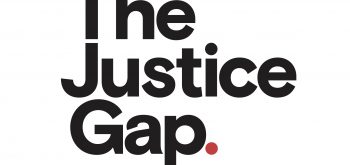No evidence of a link between tougher penalties and lower rates of teenage cannabis use, new study finds.
The new study, by Professor Alex Stevens of the University of Kent, challenges the conclusions of research from 2015 (see here), which suggested that policy liberalisation is significantly associated with higher odds of teenage cannabis use. The 2015 study, despite ‘conflicting with other studies in the field’, has been cited by ‘several researchers as evidence of an association between national policy and prevalence of cannabis use’.
Prof Stevens, a member of the Advisory Council on the Misuse of Drugs and president of the International Society of the Study of Drug Policy, re-analysed the data used in the 2015 study, which came from more than 100,000 teenagers from randomly surveyed schools across 38 countries, including the UK, US, Russia, France, Germany and Canada. The analysis controlled for differences between the countries, including their national income, and between the teenagers, including their affluence, their number of siblings, difficulties in communication with parents and friends, and psychological complaints.
The data was collected before any of the 38 countries legalised the sale of cannabis, meaning policy liberalisation in the study ‘mostly refers to decriminalisation or depenalisation of possession’, explained Professor Stevens.
The new study, published in the International Journal of Drug Policy, found that mistakes had been made in the 2015 study in the interpretation of its own numerical results and that there was a lot of data missing. The new study used more of the available data and took into account the differences of cannabis use between girls and boys in different countries and found that the data does ‘not reveal a statistically significant association between policy liberalisation and higher odds of adolescent cannabis use’.
Professor Stevens said, ‘My new study joins several others which show no evidence of a link between tougher penalties and lower cannabis use. This is useful information for governments as they consider the best way to deal with cannabis. As it is, the harms and costs of imposing criminal convictions on people who use cannabis do not seem to be justified by an effect in reducing cannabis use’.
Whilst a number of countries including Canada, Uruguay, Jamaica, Portugal, the Czech Republic, Spain, Germany, Italy and several US states have reformed laws on cannabis, the independent review of drugs and crime led by Professor Dame Carol Black, announced by the Home Office last week, will not consider changes to the existing legislative framework or government machinery in the UK.






